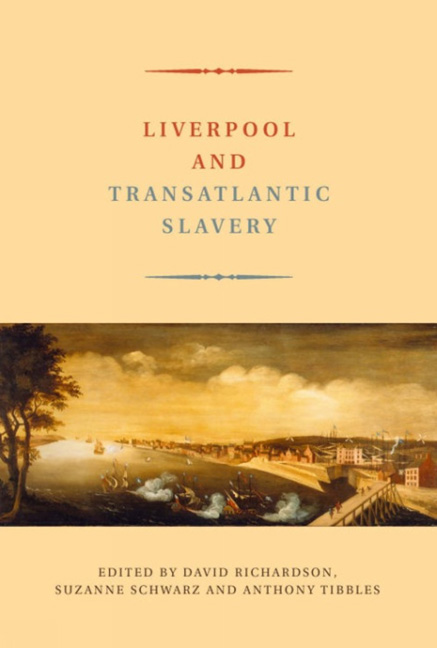Book contents
- Frontmatter
- Content
- Preface
- Notes on Contributors
- Introduction Liverpool, the African Slave Trade and Abolition Thirty Years On
- 1 Liverpool's Dominance in the British Slave Trade, 1740–1807
- 2 African Agency and the Liverpool Slave Trade
- 3 Human Capital in the British Slave Trade
- 4 Liverpool's Slave Trade to the Colonial Chesapeake: Slaving on the Periphery
- 5 The Liverpool Slave Trade, Lancaster and its Environs
- 6 The Atlantic Slave Trade and African Ethnicities in Seventeenth-Century Jamaica
- 7 The Wealth and Social Aspirations of Liverpool's Slave Merchants of the Second Half of the Eighteenth Century
- 8 ‘Cemented by the Blood of a Negro’? The Impact of the Slave Trade on Eighteenth-Century Liverpool
- 9 Commerce, Civilization and Christianity: The Development of the Sierra Leone Company
- 10 Abolitionism in Liverpool
- Index
10 - Abolitionism in Liverpool
- Frontmatter
- Content
- Preface
- Notes on Contributors
- Introduction Liverpool, the African Slave Trade and Abolition Thirty Years On
- 1 Liverpool's Dominance in the British Slave Trade, 1740–1807
- 2 African Agency and the Liverpool Slave Trade
- 3 Human Capital in the British Slave Trade
- 4 Liverpool's Slave Trade to the Colonial Chesapeake: Slaving on the Periphery
- 5 The Liverpool Slave Trade, Lancaster and its Environs
- 6 The Atlantic Slave Trade and African Ethnicities in Seventeenth-Century Jamaica
- 7 The Wealth and Social Aspirations of Liverpool's Slave Merchants of the Second Half of the Eighteenth Century
- 8 ‘Cemented by the Blood of a Negro’? The Impact of the Slave Trade on Eighteenth-Century Liverpool
- 9 Commerce, Civilization and Christianity: The Development of the Sierra Leone Company
- 10 Abolitionism in Liverpool
- Index
Summary
There is a range of views concerning the role played by Liverpool abolitionists in the campaigns against slavery and the slave trade. It has been claimed that abolitionist activity in the town mirrored that elsewhere and that the campaign in Liverpool was ‘in miniature analogous’ to that in the rest of the country. Conversely, one could easily conclude that, especially prior to 1807, there was minimal abolitionist activity in the town and that, since most Liverpudlians’ livelihoods were linked in some way to the trade in slaves and slave–grown goods, any anti–slavery movements would easily be stifled. This is attested by J.Wallace, who stated in 1795, ‘Almost every man in Liverpool is a merchant, and he who cannot send a bale will send a band–box … almost every order of people is interested in a Guinea cargo’.
Nevertheless, we can see that in the later campaign for emancipation, from the 1820s to 1834, there was a good deal of organized activity in Liverpool. The Liverpool Society for Promoting the Abolition of Slavery (The Liverpool Society) was active from 1822 and operating in allegiance with, but independently from, the London Committee. As the number of women's organizations across the country grew, the Liverpool Ladies’ Anti– Slavery Association, an auxiliary to the national Anti–Slavery Society, was founded in the town in 1827, with James Cropper's female relatives playing a central role in it. Pro–slavery advocates’ propaganda provides further evidence of the effectiveness of abolitionism from Liverpool in the later campaign. In 1825, Liverpool abolitionist James Cropper was charged by James McQueen (along with Thomas Clarkson and The Edinburgh Review) with making ‘calumnies and misrepresentations’ against the West Indian colonies. McQueen's inclusion of Cropper's name alongside Clarkson's shows that not only was abolitionism formalized and coherent in Liverpool during the early 1820s but also that by the middle of the decade at least one of the town's campaigners had achieved a high degree of prominence.
National publication and recognition of an outspoken Quaker merchant with extensive East Indian interests, and the existence of the Liverpool Society and Ladies’ Association, do not necessarily indicate a bustle of abolitionist agitation in the town.
- Type
- Chapter
- Information
- Liverpool and Transatlantic Slavery , pp. 277 - 296Publisher: Liverpool University PressPrint publication year: 2007



